What Is Cooperative Play?
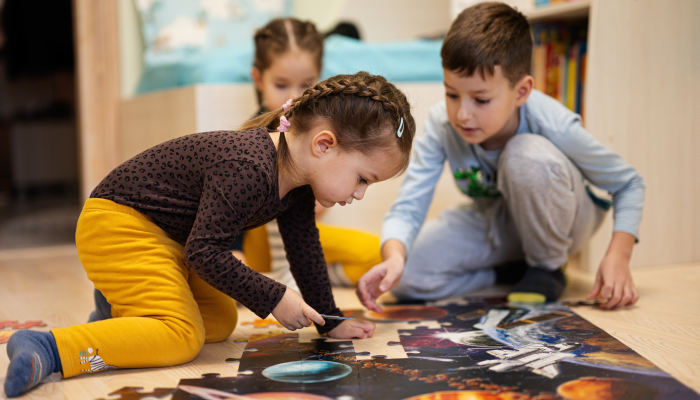
- Cooperative play is the most advanced stage of play in early childhood where children begin to interact, communicate, and play collaboratively with others.
- Cooperative play helps children with language, problem-solving, conflict resolution, relationship-building, and other social skills.
- The skills required for cooperative play, like sharing, turn-taking, and negotiation, can be difficult for young children.
- Conflict, disagreement, and handling emotions are inherently a part of learning to work together in cooperative play.
- Adults can promote cooperative play by guiding activities, providing supplies, designating roles, and supporting children through resolving conflicts.
Kids learn through play, and cooperative play helps young children with so many social and emotional skills. Children reach the cooperative stage of play when they begin to play with other children and not simply alongside them.
Cooperative play happens when children start to communicate with each other to work toward accomplishing a shared goal or idea, like taking on roles for playing house or working collaboratively to build a fort.
The skills required for cooperative play, like negotiation, self-regulation, and conflict resolution, can be difficult for young children. However, learning to share and resolve disagreements is all part of the point.
Take a look at our guide to cooperative play so that you can support your child and their little friends as they navigate the ups and downs of learning to play together and build relationships.
Cooperative Play Explained
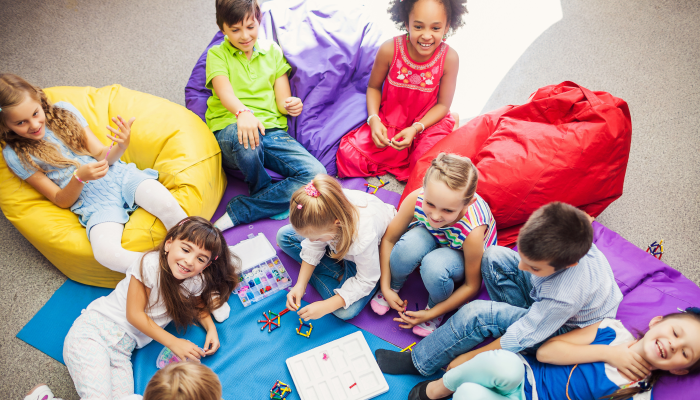
Cooperative play is the most advanced stage of the six stages of play that children experience as they grow and develop.
In the 1930s, psychologist Mildred Parten identified six stages of play that children progress through as they grow and develop:
- Unoccupied play: (0-3 months) Babies explore things around them at random without organization.
- Solitary play: (0-2 years) Children play alone without social interaction.
- Onlooker play: (2 years) Children watch and learn from other children’s play, but don’t interact.
- Parallel play: (2+ years) Children play alone but alongside other children.
- Associative play: (3-4 years) Children play together and share but don’t yet have a common goal.
- Cooperative play: (4+ years) Children play together with shared ideas, goals, roles, rules, problem-solving, and negotiation.
Cooperative play11. Rymanowicz, K.. The power of play – Part 1: Stages of play. Child & Family Development. 2015. https://www.canr.msu.edu/news/the_power_of_play_part_1_stages_of_play, which children begin to engage with around ages 3 to 4, is categorized by shared efforts made by the players—for example, working together towards a common goal, agreeing on rules for a game, communicating with each other, and adopting the ideas of others.
Up until this stage, young children are more focused on themselves and the object they are playing with. As they become more interested in social interaction, children watch how other kids play, as in the onlooker stage. They may also play alongside other children, as in parallel play.
Playing cooperatively, however, is markedly different. In this stage, kids begin to engage with each other actively, take turns, listen, negotiate, share ideas, and work toward a goal together, like a scenario for role-playing, building a fort, or creating a game.
This stage of play is critical for children’s social development because it requires them to use advanced skills for communicating, sharing, and negotiating. Cooperative play leads to the formation of a child’s first real friendships, and they start to build meaningful peer relationships for the first time.
However, negotiation and turn-taking can be difficult concepts for young children to understand, and some conflict is to be expected between children as they learn to compromise and share.
Learning to handle their emotions and solve problems when they arise are also a critical part of this stage of play.
The Benefits of Cooperative Play
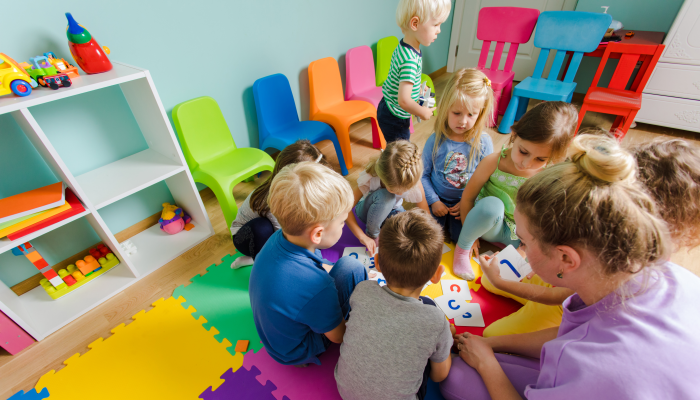
In the book Peer Play22. Scott HK, Cogburn M. Peer Play. Treasure Island (FL): StatPearls Publishing. 2024. https://www.ncbi.nlm.nih.gov/books/NBK513223, researchers Hannah Scott and Mark Cogburn explain that in cooperative play, children expect a response from their peers and seek acceptance from them for the first time.
As a result, “this shift allows for the development of perspective taking, empathy, turn taking, sharing, cooperation, and negotiation.”
Learning these essential skills is among the many benefits of cooperative play and the reason why it’s so important to encourage and support this stage of your child’s development.
Some further benefits of cooperative play include:
| Cognitive development |
|
| Social and emotional development |
|
| Physical development |
|
Long-Term Impact on Children’s Development of Playing Cooperatively
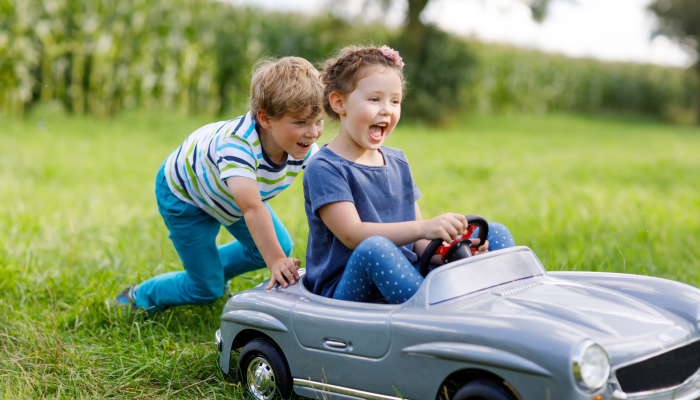
The American Academy of Pediatrics33. Yogman, M.. The Power of Play: How Fun and Games Help Children Thrive. HealthyChildren.org. 2023. https://www.healthychildren.org/English/family-life/power-of-play/Pages/the-power-of-play-how-fun-and-games-help-children-thrive.aspx (AAP) encourages parents to use play to help their children’s learning because, “research shows play can improve children’s abilities to plan, organize, get along with others and regulate emotions. In addition, play helps with language, math and social skills, and even helps children cope with stress.”
Through collaborative play and cooperative games, children learn about relationships, work on critical thinking skills to solve problems, develop leadership skills, learn to resolve conflicts and understand the give and take of friendship.
Fostering social skills through cooperative play prepares children for the social interactions they will have in everyday life as they go to school and grow into adolescence and then adulthood. The lessons learned in the cooperative play of young children are crucial for later social and emotional development.
Strategies for Encouraging Cooperative Play
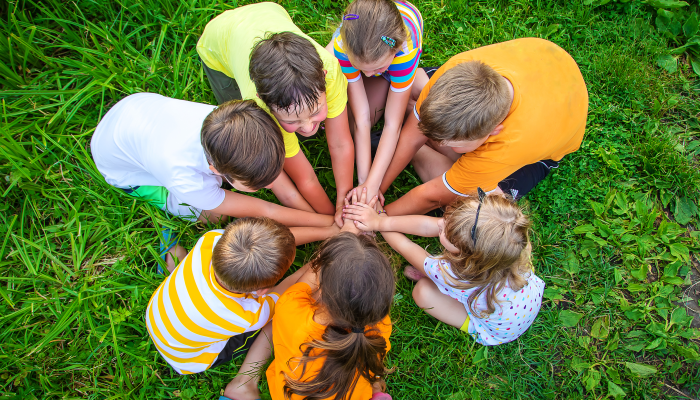
While children need to have time for free, unstructured play, adult guidance is beneficial for creating a supportive environment that fosters cooperative play.
Children also need adult support to help resolve disagreements that may arise and to help them handle their emotions if and when there’s conflict.
By providing guidance, physical space, and materials, you can set the stage for cooperative interactions.
While you don’t want to overschedule children, the AAP suggests that scheduling playdates so that children have opportunities to play together is important for this stage of early childhood development.
Here are some ideas for encouraging your child’s cooperative play with siblings and friends:
| Set Up Shop |
|
| Animal Hospital |
|
| Build a Fort |
|
| Teddy Bear Picnic |
|
Overcoming Challenges in Cooperative Play
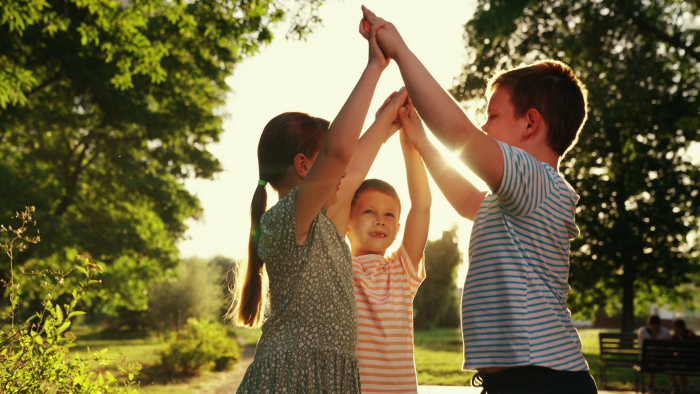
Remember that cooperative play requires advanced social skills like negotiation, perspective-taking, and conflict resolution. It also requires children to regulate their emotions.
Children learn and practice these skills through play, so some tears, frustration, and arguments are to be expected. They are all part of the learning process.
However, you can help guide children through any rough patches and model appropriate responses44. Garey, J.. Teaching Kids How to Deal With Conflict. Child Mind Institute. 2024. https://childmind.org/article/teaching-kids-how-to-deal-with-conflict for them, like compromise. Try the following:
| Designate roles |
|
| Variety of activities |
|
| Help children talk about their feelings |
|
Experts at the Child Mind Institute66. Howard, J., Rooney, M., & Busman, R.. Kids Who Need a Little Help to Make Friends. Child Mind Institute. 2024. https://childmind.org/article/kids-who-need-a-little-help-to-make-friends recommend allowing things to unfold naturally on a playdate, as long as there is no risk of danger. Children learn best from the natural consequences of their actions.
Praise children for their positive behaviors and, most importantly, allow them to practice in a supportive and safe environment.
References
- Rymanowicz, K. (2015, October 6). The power of play – Part 1: Stages of play. Child & Family Development. https://www.canr.msu.edu/news/the_power_of_play_part_1_stages_of_play
- Scott HK, Cogburn M. Peer Play. [Updated 2023 Jul 4]. In: StatPearls [Internet]. Treasure Island (FL): StatPearls Publishing; 2024 Jan-. Available from: https://www.ncbi.nlm.nih.gov/books/NBK513223
- Yogman, M. (2023, May 3). The Power of Play: How Fun and Games Help Children Thrive. HealthyChildren.org. https://www.healthychildren.org/English/family-life/power-of-play/Pages/the-power-of-play-how-fun-and-games-help-children-thrive.aspx
- Garey, J. (2024, March 8). Teaching Kids How to Deal With Conflict. Child Mind Institute. https://childmind.org/article/teaching-kids-how-to-deal-with-conflict
- Hurley, K. (2018, November 21). 5 Strategies to Help Kids Resolve Conflict. PBS. https://www.pbs.org/parents/thrive/5-strategies-to-help-kids-resolve-conflict
- Howard, J., Rooney, M., & Busman, R. (2024, January 5). Kids Who Need a Little Help to Make Friends. Child Mind Institute. https://childmind.org/article/kids-who-need-a-little-help-to-make-friends
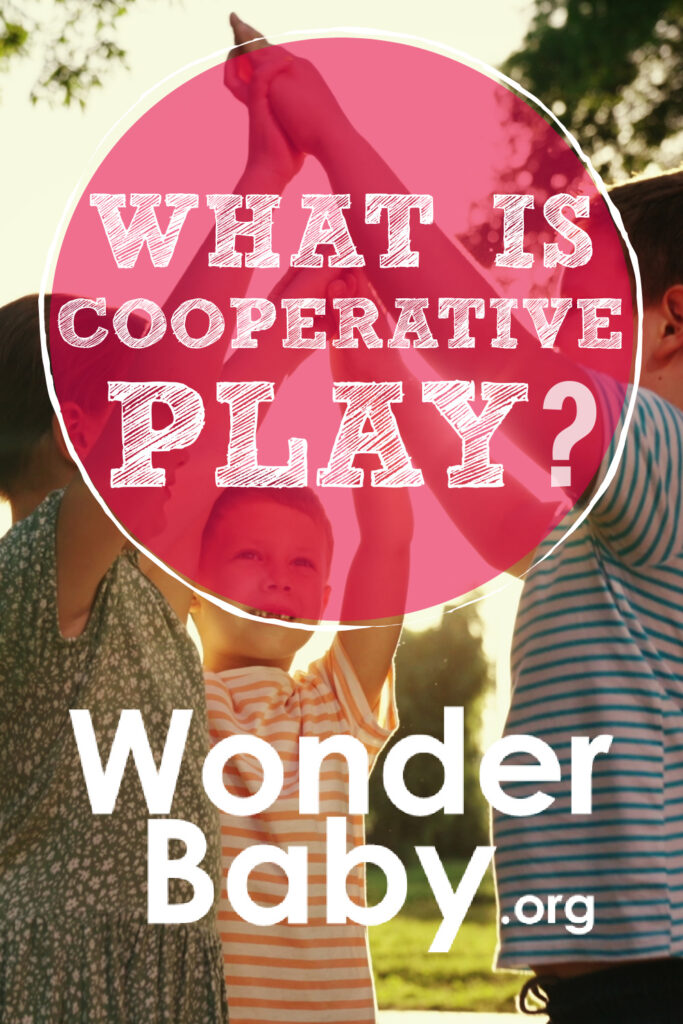
Related Posts
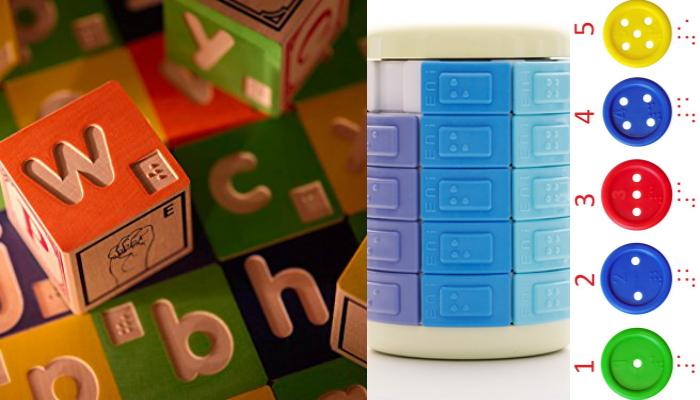
Braille and Literacy, Toys, Visual Impairment
24 Braille Toys for Kids Who are Blind
Everything from alphabet blocks to raised line coloring pages and activity books to puzzles to card and board games... and so much more! And it's all in braille ready for...

Holiday Crafts and Ideas
Should Parents Lie to Their Kids About Santa Claus?
Should parents lie about Santa? Find out how to balance trust, magic, and holiday traditions right here!
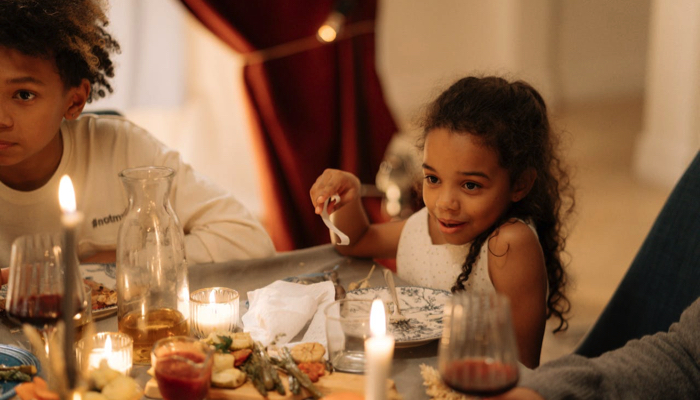
Holiday Crafts and Ideas, Special Needs
5 Tips for a Peaceful Thanksgiving with Your Child with Disabilities
Thanksgiving can be a joyful yet overwhelming holiday, especially for families with children who have sensory, motor, or dietary needs.